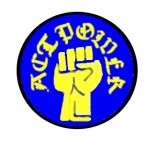In the first few days of July I began writing a post about the report of the Foreshore and Seabed Review Panel. Due to absurd busi-ness* I never got it finished. Since the government has this week responded to the review panel’s findings, two months after it undertook to do so, by kicking the issue to touch, I figure now is as good a time as any to examine the issue again.
First, let me begin by clarifying my position on the issue and the government’s handling of it. I have been vocal in my support of the mÄori party’s willingness to work with National in government, and their willingness to accept a range of lesser policy concessions in service of the repeal of the Foreshore and Seabed Act — not so much on the basis that it (the repeal) will necessarily result in a greater quantum of economic or social benefit than those other concessions might have, but on the basis that the decision is for MÄori to make. The mÄori party, (it is often repeated, mostly by disgruntled Labour supporters) does not represent all MÄori, and this is true — but inasmuch as it has kaupapa MÄori foundations, it has a stronger philosophical claim to representat those mÄori who share that kaupapa basis than any other party in parliament; and on this issue in particular, a stronger mandate than the Labour party.
Indigenism
The striking thing about the review, and perhaps the reason for the tardy and incomplete response from the government, is that it is grounded in indigenist principles. It’s not the only indigenist policy document the government has kicked to touch in recent months: the NZGB recommendation that the spelling of Wanganui be corrected to Whanganui is another such thing. Indigenism, here used, is not so much ethnic nationalism (as it is usually given to mean) as a non-eurocentric philosophical basis; one which does not presuppose a PÄkehÄ worldview or rules of engagement — a necessary quality in that sort of political action, but not in itself a sufficient quality. Linda Tuhiwai Smith’s book Decolonising Methodologies provides a clear explication of the practice of indigenist and indigenising research in the Aotearoa-New Zealand context.
The indigenist position derives largely from the choice of panellists (two of whom are MÄori scholars) and from the scope of the inquiry, which explicitly gave the panel a mandate to assess the extent to which the FSA “effectively recognises and provides for customary or aboriginal title and public interests” in the foreshore and seabed. This accepted the facts of NZ’s constitutional and legal history and jurisprudence from the Treaty of Waitangi, the Native Land Court and more recently the MÄori Land Court, the Waitangi Tribunal, and the Court of Appeal in the NgÄti Apa case: that there are customary rights; they are not a legal fiction or a ‘simple nullity’ as Prendergast had it. These were facts which Labour, claiming to be the natural party of MÄori representation, needed a court to tell them — and they reached for the nuclear option of legislation when the court did so. This change is important because it lays the tracks for future legislative and legal events: because the review was conducted from an indigenist basis, the resultant action must necessarily take on an indigenist hue. This was the complaint levelled by all of the usual suspects when the panel was named — as if the job of assessing a dispute over historical rights and legal process could shomehow be neutrally conducted by those whose institutions were responsible for its ongoing rancour.
More than ‘One Nation’
The indigenist perspective embedded in the review process and its frame has resulted in the forthright rejection of “all New Zealanders” rhetoric and the homogenisation which that discourse implies. Diversity exists; different groups have different rights in custom and culture and in law; that reality needs to be carefully managed, not ignored or subsumed by a system which says “we all have the rights I think we should have, and not those which you value”. This is the central foundation on whcih the report and its recommendations stands. In the words of the panel:
the very real problem that arises from the populist notion of “one people†under one law is quite simply that it does not recognise – indeed denies – the fact of the ethnic, cultural and social diversity of our population, which we would argue considerably enriches rather than divides our society. […] We are acutely aware that the notion of “one people†is, in the main, rejected by MÄori. MÄori say that we are simply two peoples comprising one nation. They see the notion of “one people†emboldened within a western paradigm that is constructed upon those premises and values which underpin the majority culture, the effect of which is to deny their existence. MÄori collective property rights have rarely been treated in law in the same way as have non-MÄori property rights.
Indeed they haven’t. And there are different conceptions of property rights issues in play here — rights of heredity and customary usage. Submitter Edward Ellison on behalf of Te RÅ«nanga o Otakau:
What we’re talking about is the mana or rangatiratanga rather than what we might term title or ownership as in the narrow European concept. It just doesn’t do it justice and it can be easily turned against us.
It’s the same issue which resulted in widespread alienation of land in the half-century following the Treaty’s signature: Western legal paradigms of ownership didn’t recognise collective landholdings, so they assumed that lands were the possessions of a given rangatira (or just someone who claimed to be rangatira) to dispose of. The panel, again:
More importantly, throughout this country’s history MÄori advocacy and claims have not been made on the basis of ethnicity but of inherited rights – just as non-MÄori have made claims and had them met on the basis of inherited rights. Indeed, property and customary rights are not argued on the basis that people are ethnically MÄori, but because they have historically inherited rights to speciï¬c areas and resources – in the same way as a non-MÄori landowner is able to pass down his or her land and associated resources to their children, and so forth.”
This illustrates a point of framing which has shot clear through the discourse around the issue: most discussion is about entitlement or claims under the Treaty of Waitangi, underlined by the fact that tangata whenua have had to go cap-in-hand to the Crown and its authorities. This isn’t a matter of claims or entitlements: it’s about securing rights to resource access and exploitation which never lapsed. The ‘troughing modies’ argument simply ignores the fact that parts of the coast owned by private concerns can and frequently are passed undisturbed down through successive generations of landowners. Just because the resources in question have been handed down collectively in accordance with tikanga, and just because the holders of rights to those resources refuse to accept a Western paradigm of property rights, the claim should be no less valid. This is not to say, however, that the matter is strictly one of property rights. Fundamentally it’s a matter of adherence to the Treaty, which guaranteed tangata whenua the right to their cultural practices (part of ‘tÄonga katoa’ from Article 2) which permit them to consider the issue in ways not limited to a strict property-rights interpretation imposed from without.
The excerpts above demonstrate a strong critique of the ‘one nation’ rhetoric, and the falsity of that discourse, in which a culture which is dominant both in terms of numbers and of power draws artificial and appropriative distinctions between transfer of rights and property which are deemed legitimate and those which are deemed illegitimate. This is the discourse which gave rise to Iwi/Kiwi and to the Foreshore and Seabed Act; they are cut from the same cloth. It is the discourse, and the self-serving assimilationism it represents against which the critique is levelled; not against the PÄkehÄ establishment except inasmuch as the two are indistinguishable. Those PÄkehÄ taking umbrage at the critique should, therefore, examine their own role in and allegiance to that discourse and the system which bred it; those who reject it and what it stands for have no cause for alarm from the review process.
Divisions within
But what’s curious is that indigenism, and indigeneity, were central to the review, and to the issue and its future solutions, but ethnicity was not itself a determinant of position among submitters to the review. The panel found that
It was not possible to categorise the submissions by ethnicity in a reliable manner. While provision was made for submitters to specify their ethnicity, this option was not always used, or people elected more than one ethnicity. In any case, ethnicity is not necessarily determinative of viewpoint; some MÄori submitters tended towards what might be termed a “PÄkehÄ world viewâ€.
The Foreshore and Seabed dispute is not just a dispute between MÄori and PÄkehÄ, as Don Brash and Michael Laws and Chris Trotter would have you believe: the divisions are as much within PÄkehÄ society and MÄori society as between them. A ‘clash of civilisations’ paradigm here obscures what’s really happening, it does not illuminate it.
I’ll look more closely at this point, and its cultural and constitutional ramifications, in a future post (when I get time). To be continued.
L
* The same busi-ness which has rendered my posts rare and largely prevented me from participating in the frequently-excellent discussions which have emerged in response to them. Please read my absence as an interested ‘points noted’, and please don’t let my scarceness dissuade you from continuing as you have been.


